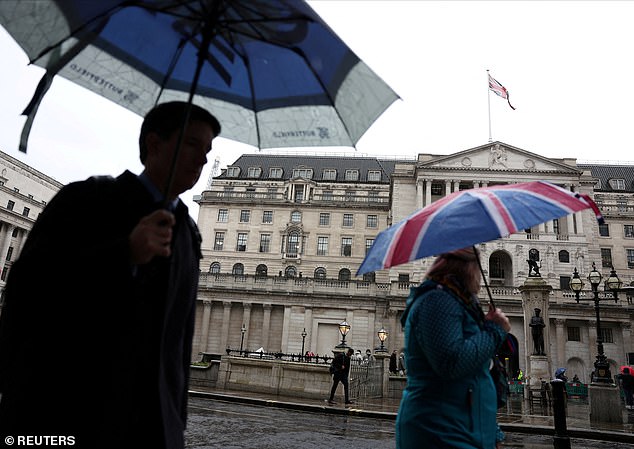Table of Contents
What we have learned so far from a fruitless election debate is that Britain appears to be a fiscal basket case.
Despite this, three categories of income – income tax, national insurance and VAT (except for private schools) – are untouchable.
The reality is that the UK’s budget deal, although disputed, is better than that of most of our G7 competitors, with the exception of Germany.
Under current fiscal plans, the debt-to-output ratio is projected to decline in 2028-29.
The intention is to reassure markets that the UK has a credible medium-term fiscal plan. However, successive Chancellors have moved the goalposts. Therefore, we should not assume that they are immovable.
Bank of England: UK budget deal, although disputed, better than most of our G7 competitors, except Germany
There is reason to think there might be more room for maneuver than is generally assumed.
A capable government could control NHS spending through the use, and even monetization, of artificial intelligence. Jeremy Hunt started down this path in his March budget.
The other big money saver would be an aggressive initiative to reduce welfare spending by ending the rising cost of working-age people receiving expensive health benefits.
Thats not all. As interest rates fall, from the unnecessarily high 5.25 percent, the cost of servicing the national debt should fall.
Goldman Sachs notes that losses in the asset purchasing mechanism, a legacy of quantitative easing, should improve.
If there is a legacy of Liz Truss’s tantrum, it is that all sides fear disturbing the calm in bond markets.
The strict tax framework is dangerous because it is pushing the Liberal Democrats and the Labor Party in a direction that penalizes business.
No one could disagree with Liberal Democrat leader Ed Davey’s promises to fix welfare. Or his desire to extend the child benefit to more than two children.
The path to get there is worrying. He believes around £27bn of extra revenue can be raised by 2028-29 without taxing ordinary people.
Raising taxes on banks and oil companies might seem like an easy victory. But if bank taxes are too high, they will make the financial system less safe and could hinder lending and increase costs for customers.
If Big Oil decided that the UK was a bad place to do business (Shell has floated the idea of moving to the US), then investment in green technologies could be punished.
Penalizing share buybacks would be a spiteful blow to a struggling London stock market and encourage debt-driven finance.
As for the Labor Party (we’ll find out more about its plans later this week), previously announced intentions to close wealth loopholes and North Sea drillers would drive capital overseas and plans for a Green New Deal would be a fancy. If Britain wants to invest in next-generation technologies, it needs R&D and tax incentives.
crazy legacy
If questionable behavior at the highest level of BP is any guide, the oil company’s human resources department will have its hands full.
Following the dismissal of former chief executive Bernard Looney for failing to fully disclose his past relationships with colleagues, the group is tightening disclosure rules. The oversight cost Looney £31 million in lost revenue.
Everyone who works at BP will be required to report all intimate relationships, not just those that represent a conflict of interest.
Chief Executive Murray Auchincloss acknowledged a relationship with a fellow BP executive when he took over as CFO in 2020.
His name appeared in print as a result of share purchases featured in the London Stock Exchange’s regulatory news services. BP’s new policy may seem sensible given past mistakes.
But it will raise questions about privacy and possible misuse of information.
Pensions punished
M&S boss Archie Norman is right to blame pension funds for the malaise of listed companies in London.
Tax changes (loss of dividend credit), overzealous regulation, a shift from shares to gold investments and risk aversion have destroyed the stock market culture in the UK.
During the market crisis in autumn 2022, we learned that liability-driven investments (LDI) – derivatives built on British government bonds – risked bringing down the entire pension system. Scary.

